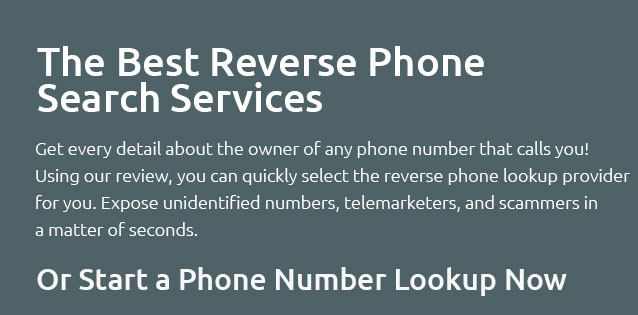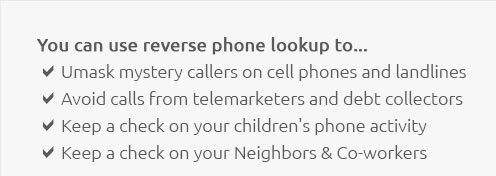 |
 |
 |
|---|
 |
 |
|---|---|
|
|
 |
|
|---|---|
 |
 |
 |
 |
 |
 |
|---|---|
 |
|
Understanding Number Reverse Lookup in the US: What to ExpectIn today's digital age, the ability to identify unknown callers has become increasingly important, especially with the surge in spam calls and telemarketing. Number reverse lookup is a service that allows individuals to uncover the identity of a caller by inputting the phone number into a database. In the US, this service is both accessible and widely used, but it's essential to understand its nuances and capabilities. So, what should you expect from using a number reverse lookup service in the US? First, let's discuss the accessibility. There are several online platforms and mobile applications that offer reverse phone lookup services. Websites like Whitepages, Spokeo, and TrueCaller are popular options. These services often provide a basic level of information for free, such as the location of the caller and the type of phone (landline or mobile). However, for a more comprehensive report, including the caller's name, address, and potentially more, users might need to subscribe to a premium service. One might wonder about the accuracy of these services. Generally, they pull information from public records, user-contributed databases, and other open sources. While these can be quite accurate, there is always a margin of error, especially if the number is newly registered or belongs to a private individual who has opted for non-disclosure. It's important for users to approach these results with an open mind and cross-reference with other sources if possible. When it comes to privacy, number reverse lookup services are a double-edged sword. They can be incredibly useful for identifying suspicious calls but also raise concerns about personal data being easily accessible. It's advisable to review the privacy policies of any service you use to ensure your data is not being misused or resold without your consent. Legal aspects are also worth considering. In the US, there are regulations regarding the use of reverse lookup services, especially in relation to the Telephone Consumer Protection Act (TCPA). While using these services for personal reasons is generally acceptable, using them for marketing purposes might require compliance with specific legal standards. Thus, businesses should be particularly cautious. Moreover, there's a growing trend towards integrating AI and machine learning in these services, enhancing their ability to predict and identify spam numbers by analyzing calling patterns and user feedback. This can greatly improve the user experience, offering more accurate and timely information. As with any tool, the user experience varies. Some services provide a seamless interface and quick results, while others might be bogged down by ads or require extensive user input. Reading reviews and perhaps trying out a few different services can help determine which one best suits your needs.
In conclusion, while number reverse lookup services in the US offer a valuable tool for identifying unknown callers, it's crucial to use them judiciously, being mindful of accuracy, privacy, and legal implications. As technology evolves, these services are likely to become even more sophisticated, but users should remain informed and vigilant to ensure they are using these resources effectively and responsibly. https://www.usa-people-search.com/reverse-phone-lookup
Performing a free reverse phone lookup on USA People Search is quick and easy. Just enter a phone number to find the owner's name and other information. https://thatsthem.com/
ThatsThem is a 100% free people search providing phone number, email address, and postal address so you can find the person you're looking for. https://thatsthem.com/reverse-phone-lookup
Search over 100 million records to see who called with our phone number search. Get names, locations and much more about cell phone numbers all for free!
|
|---|